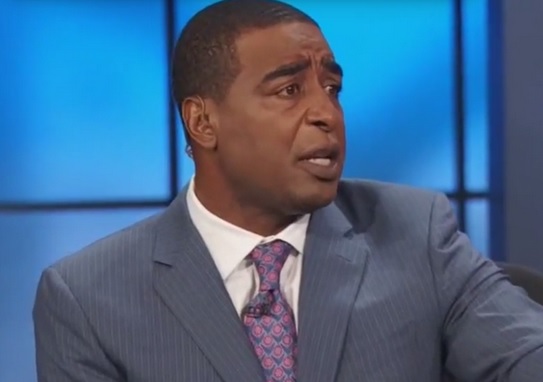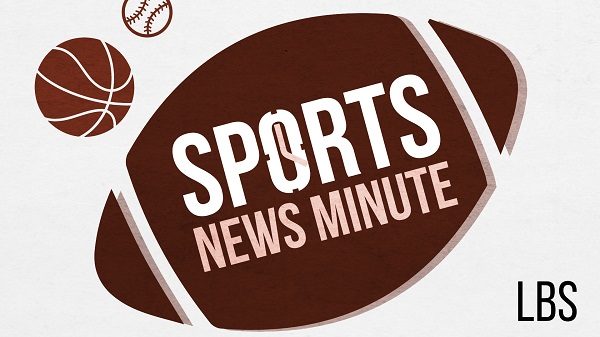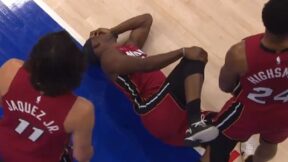Robert Klemko explains why he never reported Cris Carter comment

The Monday Morning Quarterback’s Robert Klemko attended the NFL rookie symposium in 2014 where Cris Carter made his now infamous “fall guy” speech, but he never reported the remark. Instead, Carter’s advice to rookies that they obstruct justice and skirt the law when doing something wrong only became publicized by an ESPN feature about Chris Borland.
Carter has since apologized for the advice, while the NFL issued a statement about it and deleted the video from their website. Now Klemko is explaining why he never reported what he heard.
Here is what Klemko wrote in a statement on the matter:
Two years ago I attended the NFL symposium as the first writer to gain near-unfettered access to the rookie orientation event. (http://mmqb.si.com/2014/07/09/nfl-rookie-symposium-part-2) I agreed to the NFL’s condition that I would not enter the small group sessions, and there would be one or two things the league could look back on and say, ‘that was off the record.’ When the public relations or marketing arm representing an org or a player facilitates access such as this, there is often a verbal agreement that certain details observed in the course of reporting may be negotiated for omission. Personally, I only agree to these omissions when the subject matter is immaterial to what I gather is the larger point of the story, which, in the case of the symposium, I believed Carter’s comment was. Having interviewed numerous people involved with previous symposiums, on and off the record so as to give NFL employees the opportunity to honestly critique the new set-up, I was satisfied that Troy Vincent’s vision of involving ex-players was proving fruitful, even considering the risk of someone like Carter saying something stupid to the rookies. The sources of actual constructive advice, I judged, far outweighed Carter’s comment. When Carter said the words, “have a fall guy” in what was a light-hearted and animated session that at times made league employees in attendance cringe, the NFL’s Kim Fields looked my way and said, “that can’t go in the story.” I was torn. I take pride in reporting every detail, even at the risk of damaging relationships. Earlier in my career I profiled a player who had a string of unreported violence in his life. Knowing these were not details the player or the agent wanted public, I published them anyway, because I judged those facts material to the arc of that player’s journey (the agent hasn’t spoken to me since).
I loved the Carter quote for how outlandish and idiotic it was, but I didn’t see it as emblematic of the symposium. Upon reflection, I suppose that detail might have highlighted the minor perils of the symposium’s transformation under Vincent. Maybe it was a mistake not to run it, but I had made an agreement which boiled down to this: Tell 95% of an untold story, or none of it. I chose 95% because I wanted to take readers someplace they’d never been, and I wanted to continue getting access to these sorts of events. The reality is nearly all of us reporters make these concessions. Consider the very story that brought Carter’s comment to light. In it, the Fainaru-Wada brothers write:
“Get yourself a fall guy,” Borland says one of the former players advised. The former player, whom Borland declined to name, told the rookies that if they ran into legal trouble, their designated fall guy would be there to take the blame and, if necessary, go to jail. “‘We’ll bail him out,'” Borland says the former player assured them.
Armed with that information, the brothers could have easily figured out who the player was by interviewing members of that class, but they didn’t. Borland didn’t want them to. He didn’t want his name attached to a story that outed Carter, and ESPN obliged, likely because that specific detail wasn’t material to the Borland story arc, and the benefit of pursuing it wasn’t worth betraying Borland.
Through the sheer incompetence of the NFL, which posted the video of Carter’s talk online, my decision to withhold that info has now come to light. If faced with the same decision again, I would have to think long and hard about the choice. Bottom line: I need to be tougher.
Klemko’s problem was agreeing to conditional terms regarding his reporting and coverage of the event. He shouldn’t have felt like he couldn’t report such a big story like that. I also think that Klemko didn’t realize what a dynamite story he had on his hands at the time, otherwise he would have put it in his story.
Lastly, the ones crushing Klemko for failing to report Carter’s comments are people/organizations who probably would never have the opportunity to cover such an event. It’s easy to call someone out for being on a league’s payroll when you never are presented with such opportunities. As for me, if I heard something that outlandish, I’m pretty sure I would have made a story of it.
I stand 100% behind @RobertKlemko. Great young reporter who made a decision those on front line often have to make. https://t.co/KUrB9YjEoZ
— Peter King (@SI_PeterKing) August 24, 2015
The NFL again looks bad here, because they’re the ones who tried to ensure the comments were publicized. At least the public sees how they attempt to control the media. Imagine if they knew all the similar tactics employed by other leagues and teams.







